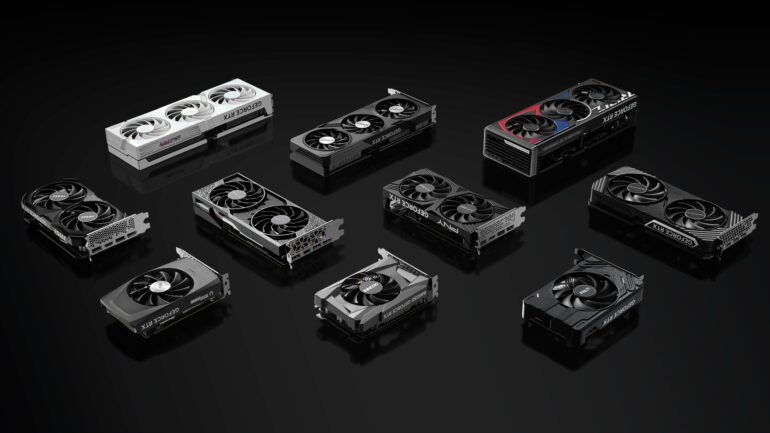TL;DR:
- GPU vulnerabilities discovered in Apple, AMD, and Qualcomm chips.
- These vulnerabilities could allow attackers to access sensitive data from GPU memory.
- GPUs lack the same data privacy safeguards as CPUs, making them a growing security concern.
- Researchers highlight the LeftoverLocals vulnerability and its potential implications.
- Apple, Qualcomm, and AMD confirm their GPUs are impacted, including popular devices.
- Apple has implemented fixes in its latest processors, but older devices may still be vulnerable.
- Qualcomm is working on providing security updates to address the issue.
- AMD plans to release optional mitigations in March.
- Google has released fixes for ChromeOS devices affected by AMD and Qualcomm GPUs.
- Coordinating and implementing these fixes poses a significant challenge in the tech industry.
Main AI News:
In the fast-paced world of artificial intelligence (AI) development, graphics processing unit (GPU) chips have become the linchpin for processing power, supporting large language models (LLMs), and handling massive data loads. The soaring demand for GPUs, driven by both video game enthusiasts and AI aficionados, has led chip manufacturers to strive for a seamless supply chain. However, today’s research unveils a security loophole within various mainstream GPUs, including those from tech giants Apple, Qualcomm, and AMD. This vulnerability could potentially enable malicious actors to pilfer substantial quantities of data from a GPU’s memory.
While the silicon industry has tirelessly fortified the security of central processing units (CPUs) over the years, ensuring that they do not inadvertently leak data from memory, GPUs have not undergone the same level of data privacy architecture. Originally designed for raw graphics processing prowess, GPUs now find themselves at the heart of generative AI and other machine learning applications, where data security is paramount. This newfound importance has thrust GPU vulnerabilities into the spotlight.
Heidy Khlaaf, Engineering Director for AI and Machine Learning Assurance at New York-based security firm Trail of Bits, emphasizes the growing concern: “There is a broader security concern about these GPUs not being as secure as they should be and leaking a significant amount of data, ranging from 5 megabytes to 180 megabytes. In the CPU world, even a bit of data leakage is considered too much to reveal.“
To exploit this vulnerability, named LeftoverLocals by the researchers, attackers must already have established some level of access to the target’s operating system. Modern computer systems and servers are designed to segregate data, ensuring multiple users can share processing resources without accessing each other’s data. However, a LeftoverLocals attack dismantles these barriers, granting hackers access to sensitive data residing in the local memory of vulnerable GPUs. This compromised data could include queries, responses generated by LLMs, and the underlying weights that drive these responses.
In a proof-of-concept demonstration, the researchers showcased an attack scenario where a target requested information about WIRED magazine from an open-source LLM, Llama.cpp. Within seconds, the attacker’s device collected the majority of the response by exploiting the LeftoverLocals vulnerability within the GPU memory. Astonishingly, the attack program created by the researchers required less than 10 lines of code.
Last summer, the researchers rigorously tested 11 chips from seven GPU manufacturers, along with various programming frameworks. Their investigation unearthed the LeftoverLocals vulnerability in GPUs from Apple, AMD, and Qualcomm. A collaborative disclosure effort with the US-CERT Coordination Center and the Khronos Group, a standards body for 3D graphics, machine learning, and virtual and augmented reality, resulted in the official revelation of this vulnerability in September.
While Nvidia, Intel, and Arm GPUs showed no evidence of the LeftoverLocals vulnerability, Apple, Qualcomm, and AMD confirmed their exposure. This means that popular devices like the AMD Radeon RX 7900 XT, Apple’s iPhone 12 Pro, and M2 MacBook Air are all potentially vulnerable. The Imagination GPUs tested did not exhibit the flaw, but other models might remain susceptible.
Apple has taken steps to address the issue by implementing fixes with its latest M3 and A17 processors, introduced at the end of 2023. However, millions of existing iPhones, iPads, and MacBooks relying on previous generations of Apple silicon may still remain susceptible. Recent retesting by Trail of Bits on Apple devices showed that the M2 MacBook Air remains vulnerable, but the 3rd generation A12 iPad Air appeared to have received the necessary patch.
Qualcomm is actively working on providing security updates to its customers, urging end-users to apply these updates once available. Meanwhile, AMD has announced plans to release optional mitigations for LeftoverLocals in March. Google has also acknowledged the issue, stating that it has released fixes for ChromeOS devices affected by AMD and Qualcomm GPUs.
The road to implementing these fixes poses a formidable challenge, as GPU manufacturers must coordinate with device makers to package and distribute the necessary protections to end-users. While exploiting this vulnerability requires a level of existing access to the target device, the potential ramifications are substantial, given the common practice of chaining multiple vulnerabilities together in sophisticated cyberattacks. Moreover, obtaining “initial access” to a device is often the first step in many digital intrusion attempts. The tech industry must remain vigilant and united in addressing these vulnerabilities to safeguard sensitive AI data.
Conclusion:
The discovery of GPU vulnerabilities in major brands like Apple, AMD, and Qualcomm raises serious concerns for data security in the market. As AI and machine learning applications continue to rely on GPUs, addressing these vulnerabilities is crucial. While some manufacturers have taken steps to fix the issue, the complex coordination required to deploy these fixes across devices poses a substantial challenge. The tech industry must prioritize data security to maintain consumer trust and protect sensitive AI data.

